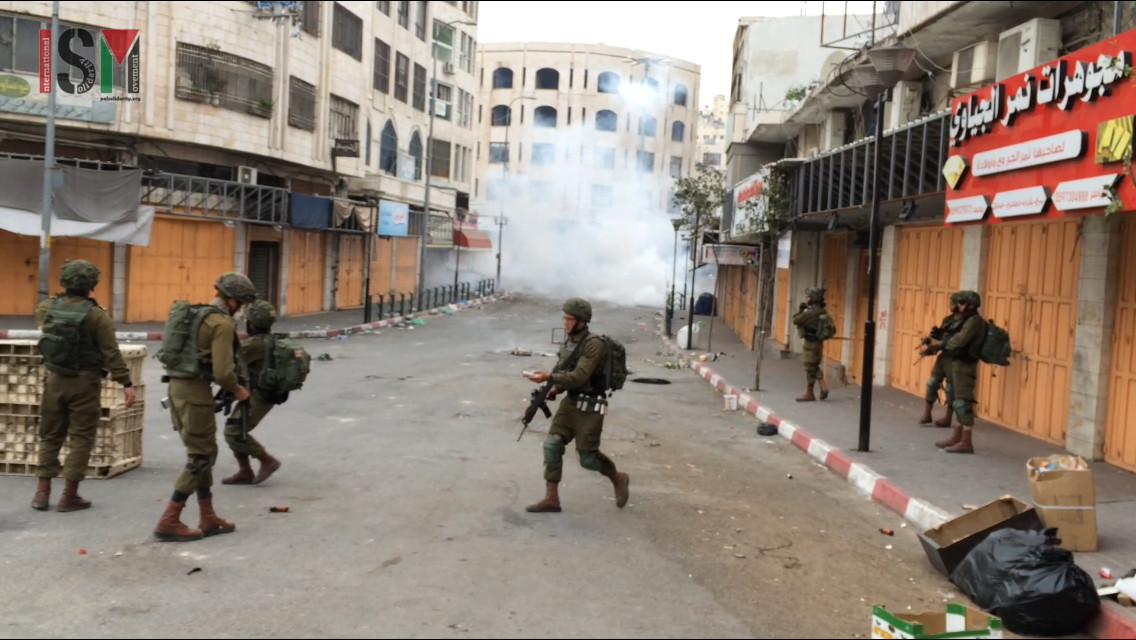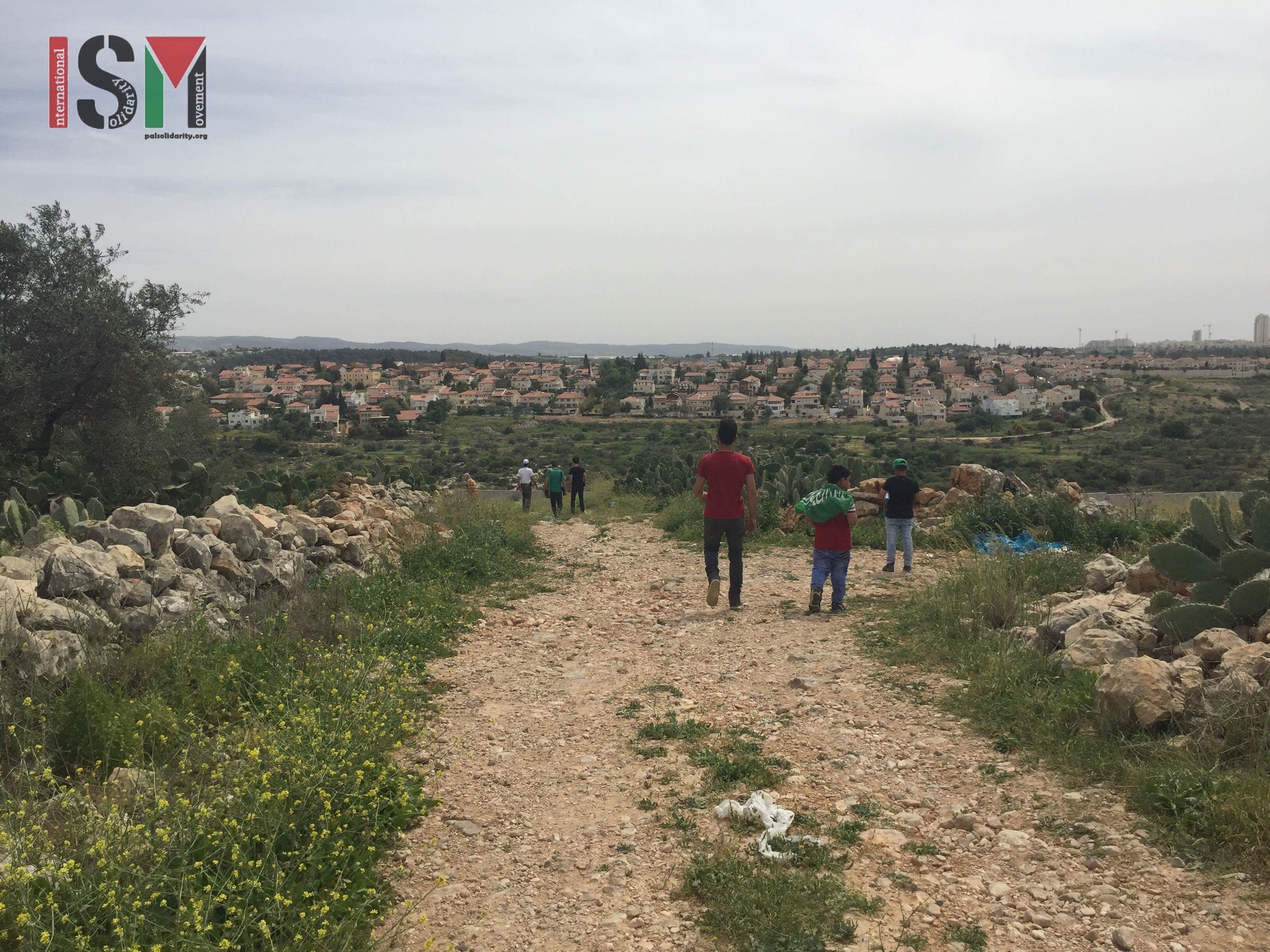Category: Press Releases
-
Israeli occupation forces fire huge amount of tear gas in al Khalil (Hebron)
Friday, 23rd March, 2018 Occupied Palestine, al Khalil (Hebron team) Clashes between Palestinian youth and occupation forces continued from around midday until dusk in al Khalil on Friday. Throughout the afternoon, Israel forces threw stun grenades and fired tear gas to supress Palestinian youth. Before midday Israeli soldiers with their automatic weapons and tear gas…
-
Palestinian protestors march to the apartheid wall to confront Israeli occupation in Nil’in
23/03/2018 International Solidarity Movement, Occupied Palestine This Friday afternoon Palestinians gathered in the olive groves in the West Bank town of Nil’in before marching to the apartheid wall to confront the Israeli occupation. At dawn on the 23rd of May 2004 a Palestinian farmer walked towards his fields in Nil’in but was met with the…
-
A Tribute: “I am here because I care.” – Rachel Corrie
“I am here because I care.” – Rachel Corrie – A tribute! Rachel Corrie served with ISM – International Solidarity Movement in Gaza in 2003 where she was crushed by an Israeli military bulldozer while protecting the home of a Palestinian doctor. She was 23 years old. Today is the 15th anniversary of her death.…



